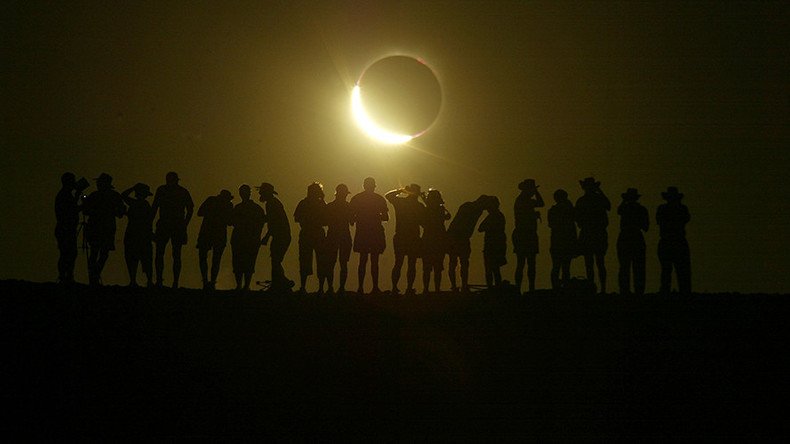Solar eclipse to cost American businesses $700mn in lost productivity

Monday's solar eclipse will cost US companies $694 million in missed output, when employees take a break to watch the moon block the sun, according to outplacement and career transitioning firm Challenger, Gray & Christmas.
The company estimates are based on data from the US Bureau of Labor Statistics (BLS).
Monday's eclipse will last nearly two-and-a-half minutes.
“There's very few people who are not going to walk outside when there's a celestial wonder happening above their heads to go out and view it,” said the firm’s Vice President Andrew Challenger.
He added that some people might take longer than three minutes, as they will need to prepare their telescopes or special viewing glasses or even take off for the day.
The overall figure uses average hourly wage data and the number of full-time employed workers older than 16.
“According to the BLS’ most recent American Time Use Survey in 2016, 82.8 percent of employed people worked on an average weekday. Additionally, according to the most recent data on flexible schedules from the BLS taken in 2004, 14.8 percent of the employed worked a shift other than a day shift,” the statement said.
However, Challenger said that this was still a small sum.
“Compared to the amount of wages being paid to an employee over the course of a year, it is very small. It's not going to show up in any type of macroeconomic data,” Challenger said.
Moreover, the Great American Eclipse is set to entail rather fewer losses than other significant events.
Total solar eclipse TONIGHT: What you need to know (VIDEO) https://t.co/0oT1P5CrUCpic.twitter.com/N1MUGU3SSj
— RT (@RT_com) August 21, 2017
The Monday after the Super Bowl reportedly led to $290 million in lost productivity for every 10 minutes of the workday spent by employees talking about the game or watching game highlights and re-runs.
Cyber Monday, following the Thanksgiving holiday, caused an estimated loss of at least $450 million for every 14 minutes spent by people on online shopping at their workplace.













